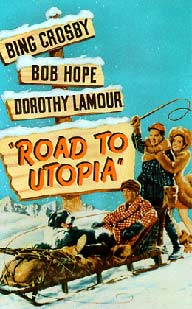|
LITR 5439 Literary & Historical Utopias |
|
Hannah Wells
June 21, 2013
A Study in Genre
A new argument in my household has to do with the
importance of genre. My husband, with film degree in hand, claims that genre
identification does not matter anymore. I, on the contrary, find genre study to
be fascinating and the key to discussion, analysis and debate in the world of
literature and film. This semester, utopian fiction has proven to be a genre at
the crossroads of genres. Several past midterms discussed Objective 1 from our
class objectives and proposed genres that “join or branch from utopia.” While
reading last semester’s essays, I found myself wondering: what’s the purpose of
blending genres?
In Sarah Coronado’s midterm
exam from 2011, she thoroughly examines the characteristics of a utopia and goes
on to discuss how the field seems to borrow from other genres. Coronado’s essay
is very well organized and intelligently assesses the conventions of utopian
works such as “the conflict of conversion” and the presence of a love story. As
her essay progresses, Coronado proposes that genres like Romanticism influence
utopian texts. She mentions the “feeling of transcendence” and “the journey
motif” as conventions shared by Romantic and utopian works like
Herland.
I noticed a rather Romantic streak in the people of
Ecotopia
who revered Native Americans and attempted to copy their
lifestyle and spirituality. Another influential genre that Coronado discussed is
the Socratic Dialogue. She evaluates the importance of this genre on
Looking Backward
and our class has discussed the Socratic
Dialogues present in More’s
Utopia and
Herland.
In the end, Coronado makes the point that the inclusion of these other genres in
a utopian work “allows utopian literature to offer much more in the way of
entertainment.” Coronado, then, directly answers my question about the purpose
of genre blending with the statement that utopian works would not be as
interesting to readers if they did not share conventions of popular genres.
Alicia Costello’s midterm essay also directly
addresses my question as to the importance of genre blending. In her paper,
Alicia analyzes the pluses and minuses of utopian fiction’s ability to be
“cross-classified.” Costello very competently examines the issues in defining
utopian works, as they are “one of the most diverse genres in literature.” I
really enjoyed her extensive list of categories including “action/adventure,
science fiction, romance, speculative fiction, dialogue, urban fiction,” that
might cross with utopia. I also found her reference to Horace and his definition
of literature as essentially “50% entertaining and 50% informative” interesting
because Costello went on to attribute the entertaining half of utopian works to
the conventions borrowed from other genres. Her argument to this point is that
“being cross-listed” with other genres helps to “attract readers” who might
otherwise ignore a work like
Ecotopia or other
“’literature of ideas.’” Costello’s answer to my question is that blending
allows for wider readership for utopian works.
Another midterm essay that
answers my question is written by Jenna Zucha. Jenna investigates the
differences between
Utopia and
Looking Backward
as more instructional texts, and
Herland
and Anthem
as both instructing and entertaining. Her
overall assessment of utopian works is that their popularity lies in the idea
that “people
need to exhaust all possibilities of what might function as a perfect world or
ideal community as a means to survive and progress.” Zucha claims, and I agree,
that the more effective utopian pieces borrow from other genres in order to be
more entertaining. “Both
novels (Looking
Backward and
Herland)
exceed in entertainment where Thomas More’s
Utopia
has fallen short for educational purposes” because they introduce “the elements
of romance.” The social message in these two novels is stronger because the
authors combined utopian conventions with a more relatable genre like romance.
Although the topic of genre is listed as an
objective for our class, it wasn’t until I read the old midterms that I got an
idea of the importance of genre blending. This kind of study is important
because it may explain why one utopian work is more popular than another, and it
will also play an integral part in analyzing common conventions. I look forward
to reading and teaching utopian texts with the purpose of identifying the genres
that combine to make it work.


